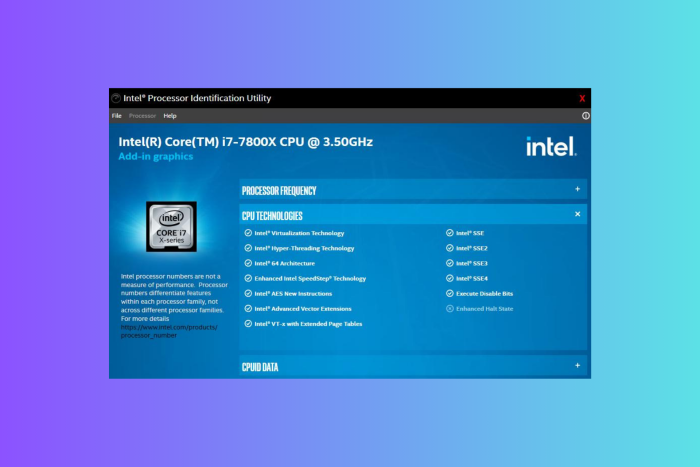Microsoft adds SSE4.2 to the list of compatibility blocks
All evidence and recent preview build indicate that it is true
2 min. read
Published on
Read our disclosure page to find out how can you help Windows Report sustain the editorial team Read more

It has been three years since the release of Windows 11, and the hardware requirements to install the operating system have not changed. Also, the necessary requirements to run the OS are easy to bypass, which helps users with old hardware run Windows 11.
However, things will not be the same now after the Windows 11 version 24H2 release . If you are following the release of preview builds of this version, you must know that it will require POPCNT instruction to boot.
This means if you have a CPU without POPCNT, you can not run 24H2 builds, even with the existing changes.
The recent addition of a registry to the Windows Registry Editor has also ensured this change is happening and it is not a mistake or temporary measure.
Also, one user, Bob Pony, noticed that while installing Windows 11 build 26058 on his computer, he got a message on the Setup page saying This PC’s processor doesn’t support a critical feature (PopCnt), among other things, which further assured the new compatibility requirement.
Another change that was spotted by Deskmodder suggests that the list of compatibility blocks is getting longer and has a new value, BlockedBYSSE4.2. This is responsible for checking whether your processor is compatible with the SSE 4.2 instruction set.
You can check it by launching Registry Editor and navigating to this path: Computer\HKEY_LOCAL_MACHINE\SOFTWARE\Microsoft\Windows NT\CurrentVersion\AppCompatFlags\CompatMarkers\GE24H2
Before you think Microsoft is forcing you to upgrade your device by introducing new requirements, you should know SSE 4.2 has been around since 2008, and Microsoft has just now added to the requirements list.
Also, if you want to use a modern operating system with updated features and the latest software, you need newer processes, as the modern OS is not designed to run on older hardware.
If you still want to run Windows 11 24H2 and need to check if your CPU can handle it, read this guide.
What do you think about this new compatibility block? Share your thoughts in the comments section below.









